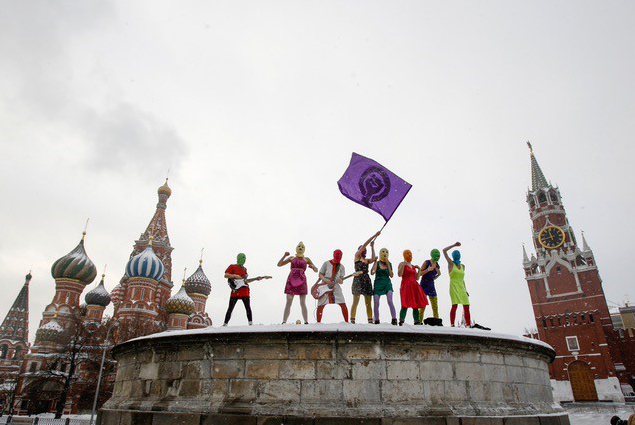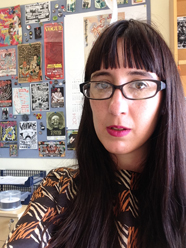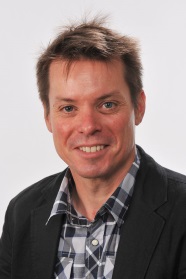Monday 11 March 2019 5:33pm

Art, activism and academia have a lot in common; all are aimed at questioning the status quo or breaking shackles says Media, Film and Communication senior lecturer Dr Rosemary Overell.
Overell, speaking ahead of this week’s visit to the University of Otago by Russian punk ‘artivists’ Pussy Riot, says the event provides a unique opportunity for students and the public to engage with a group who have risen to global prominence by making the media-sphere their own – often by donning ski masks and kicking down the door.
The eight-piece Russian activists, musicians and film-makers will screen a 15-minute film at the Dunedin campus on 16 March, before joining Dr Overell and Associate Professor James Headley (Politics) for a panel discussion on their work, the political situation in Russia and topics suggested by the audience.

Dr Overell
“This is an amazing opportunity, and it’s very rare that New Zealand, let alone Dunedin, will get to host a significant group like Pussy Riot. The film will be a good conversation starter, giving a good overview of the group’s activities, but there will be plenty of opportunities for people who might have a broader interest in Russian politics, activism, or music, to explore a range of issues,” she says.
Overell says Pussy Riot’s activities are especially relevant for media studies because they are “highly media savvy women who have completely hijacked media to offer a social commentary about Russia, but also broadly about patriarchy, and authoritarian masculinity.”
“We will guide discussion, but we really want students from all disciplines to hear about how they have taken the theory, say around social power, and put it into making media work. Our students, who are aspiring film-makers, or creatives, journalists or digital bloggers, want to see this model for engaged media practice.”
As an “inter-discipline”, media studies examines social power, and the group’s activities provide many examples of how media might be used as a sight to discuss topics, including gender politics, she says.

Associate Professor James Headley
“These women work at the intersection of various media; they are a punk band who are also a filmmakers, social media activists, and who actually work in the real world and do demonstrations, and put everything at stake to gaol for a feminist course.
The event, like a visit by hip hop artist and media activist Boots Riley in 2017 that was also organised by Media, Film and Communication, promotes the idea that we all have a responsibility to be informed, and a “critic and conscience” in society.
“This event gives us the opportunity to promote discussion, and part of academia’s role is to build critical capacity. We want young people going out into the world with the ability to articulate a resistance to, or understand how power operates.”
Time: 11am-1pm
Date: Saturday 16 March
Venue: Castle 1 Lecture Theatre, Dunedin campus
